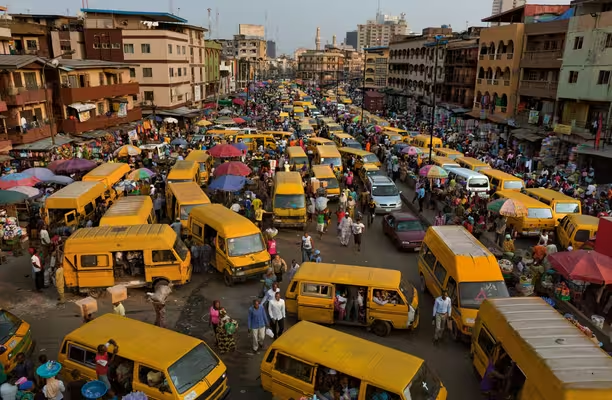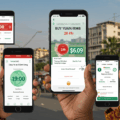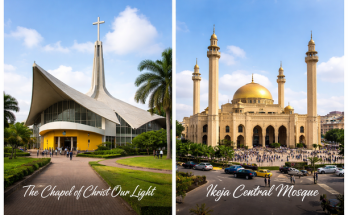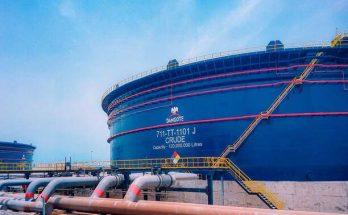By Bababunmi Agbebi
Edited by Ezennia Uche
Lagos is growing faster than it can breathe.
From Ikeja to Oshodi, the city’s expansion — vertical, horizontal, and chaotic — has turned nearly every inch of land into contested territory. Pavements are now shopfronts, drainages double as refuse bins, and pedestrian bridges have become makeshift markets. In a city of more than 20 million people, survival often means trading order for opportunity.
Yet this constant struggle for space has created an uncomfortable truth: Lagos’s rapid urban growth is increasingly at odds with its environmental health.
A City Choking on Its Own Growth
Urban planners describe Lagos as a city in overdrive — a metropolis expanding without pausing to breathe. The state’s infrastructure is under immense strain: roads wear out faster than they’re repaired, floodwaters rise higher each rainy season, and green spaces vanish beneath layers of concrete and plastic.
A major culprit is the illegal use of public infrastructure for commercial activity. Walkways, road medians, setbacks, and drainage channels are routinely taken over by traders and transport operators. What begins as makeshift trading soon becomes permanent occupation, leaving pedestrians, commuters, and city officials in constant conflict.
“The city has been overwhelmed by informal growth,” says Tunde Bakare, an environmental planner based in Ikeja. “You can’t separate the environmental problem from the economic one — people occupy public spaces because formal systems exclude them.”
The Environmental Cost
Every encroachment leaves a mark.
When traders or artisans build along drainage channels, flooding becomes inevitable. When refuse piles up on road verges, it clogs gutters and attracts pests. When trees give way to kiosks, the city loses another sliver of shade and oxygen.
According to the Lagos State Waste Management Authority (LAWMA), the state generates more than 13,000 tonnes of waste daily — and a significant portion ends up in open spaces or waterways. Combined with exhaust fumes and noise pollution from an ever-growing vehicle population, the environmental toll is immense.
Government Efforts and Public Resistance
The Lagos State Government has repeatedly launched enforcement and awareness campaigns to reclaim public spaces and promote environmental consciousness. Agencies such as the Ministry of the Environment, LASPARK, and Lagos State Enviromental Sanitation Corps (LAGESC) have carried out demolitions, cleanups, and sensitisation drives.
However, many of these efforts struggle to sustain impact. Within weeks of a clearance operation, traders often return to the same spots. For some, the city’s informality isn’t defiance — it’s survival.
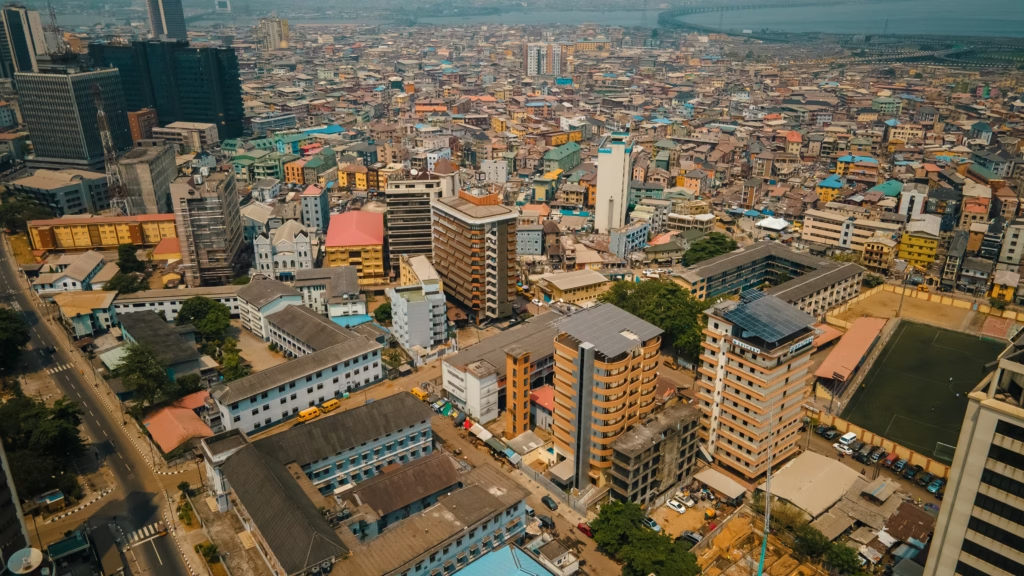
“I know it’s wrong to sell on the bridge,” admits Morenike Adebayo, a fruit seller at the Oshodi pedestrian bridge. “But where else can I go? If I don’t sell here, my children won’t eat.”
Her words underline the city’s dilemma: the line between environmental order and economic reality is blurred by poverty.
A City Seeking Balance
Urban experts argue that Lagos’s sustainability depends not only on enforcement but also on inclusion. Providing alternative trading spaces, improving waste collection systems, and enforcing zoning laws fairly could ease the tension between livelihoods and the environment.
As the state pursues its ambition of becoming a smart city, planners say a new mindset is needed — one that sees urban development and environmental preservation not as opposing goals but as partners.
“Lagos has the potential to lead Africa in sustainable urban design,” says Bakare. “But that will only happen when we plan for both people and the planet.”
The Road Ahead
For now, the task of protecting Lagos rests not just on government shoulders but also on its citizens. From traders keeping drains clear to residents disposing waste responsibly, small acts of civic discipline matter.
Because in the end, the question for Lagos isn’t just how to grow — it’s how to grow without losing what keeps the city alive.

